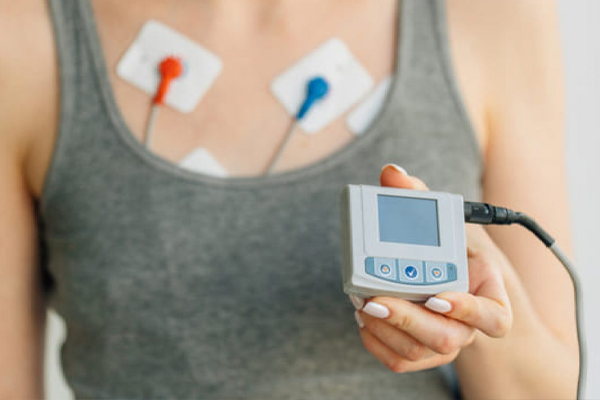The ECG provides a ‘snapshot’ in that it records the electrical activity of the heart for a few heartbeats whilst the recording is being made. This has obvious limitations for heart rhythm problems that come and go in a ‘paroxysmal’ fashion rather than a sustained rhythm abnormality.
If a patient is getting palpitation every day, then a 24 hour tape recording will be able to show the cardiologist how the heart is behaving during symptoms (which should be recorded with the time on a diary card). If the symptoms are less frequent then a 48 hour, 5 day or one week monitor might be helpful.
DURATION OF MONITOR WILL VARY ACCORDING TO THE FREQUENCY OF THE RHYTHM DISTURBANCE OR PALPITATION
It may also be useful to determine the ‘burden’ (ie frequency) of a known rhythm problem.
If the problem is rare-but potentially serious it is sometimes helpful use a ‘patient activated’ device or even to surgically implant a small recording device for several months to establish what the problem is.
All test results should be treated with caution and interpreted in the context of a clinical assessment.
